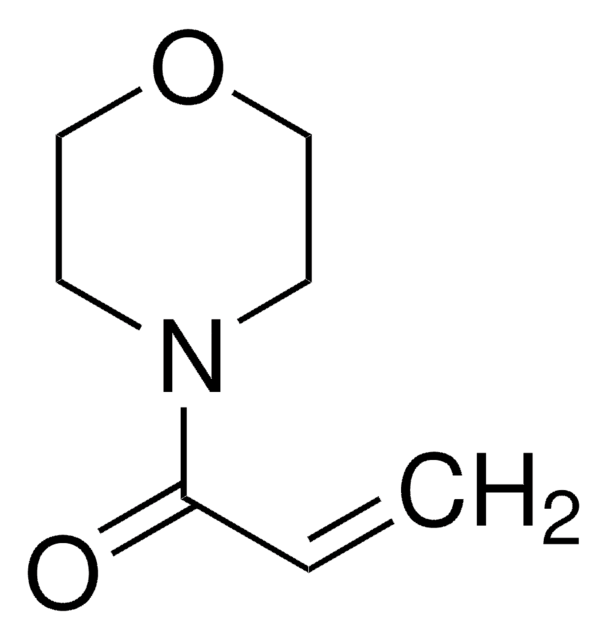415464
N-Vinylcaprolactam
98%, stabilized
Synonym(s):
1-Ethenylazepan-2-one, 1-Ethenylhexahydro-2H -azepin-2-one, 1-Vinylazepan-2-one
About This Item
Recommended Products
Assay
98%
form
solid
contains
~20 ppm HO-TEMPO as stabilizer
bp
128 °C/21 mmHg (lit.)
mp
35-38 °C (dec.) (lit.)
density
1.029 g/mL at 25 °C (lit.)
storage temp.
2-8°C
SMILES string
C=CN1CCCCCC1=O
InChI
1S/C8H13NO/c1-2-9-7-5-3-4-6-8(9)10/h2H,1,3-7H2
InChI key
JWYVGKFDLWWQJX-UHFFFAOYSA-N
Related Categories
General description
Application
Signal Word
Danger
Hazard Statements
Precautionary Statements
Hazard Classifications
Acute Tox. 4 Dermal - Acute Tox. 4 Oral - Eye Irrit. 2 - Skin Sens. 1 - STOT RE 1
Target Organs
Liver,Upper respiratory tract
Storage Class Code
6.1C - Combustible acute toxic Cat.3 / toxic compounds or compounds which causing chronic effects
WGK
WGK 1
Flash Point(F)
213.8 °F - closed cup
Flash Point(C)
101 °C - closed cup
Personal Protective Equipment
Certificates of Analysis (COA)
Search for Certificates of Analysis (COA) by entering the products Lot/Batch Number. Lot and Batch Numbers can be found on a product’s label following the words ‘Lot’ or ‘Batch’.
Already Own This Product?
Find documentation for the products that you have recently purchased in the Document Library.
Customers Also Viewed
Our team of scientists has experience in all areas of research including Life Science, Material Science, Chemical Synthesis, Chromatography, Analytical and many others.
Contact Technical Service















